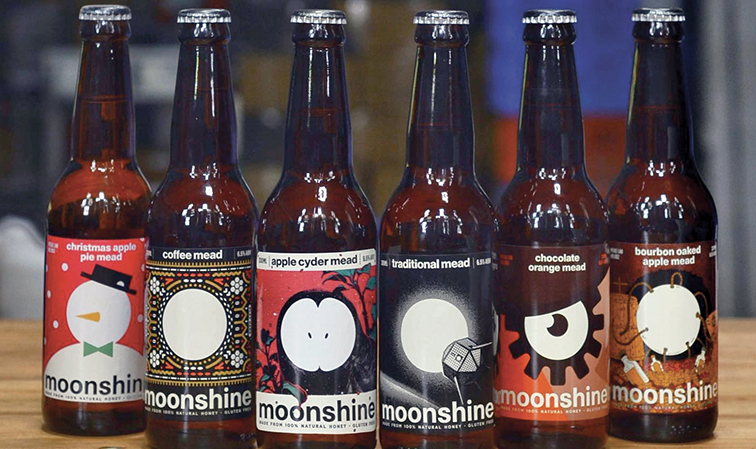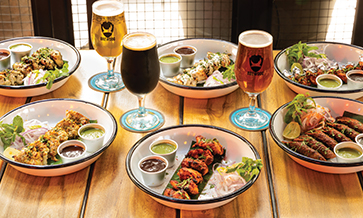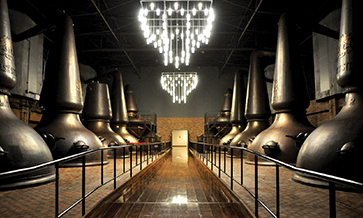As a garage-to-meadery project that bloomed in 2018, partners Rohan Rehani and Nitin Vishwas have made it Moonshine’s mission is to bring back the elixir of the gods to lovers of all things craft.
They constantly experiment with honey and spices, fruits and hops to bring fresh varieties of meads that take your palate on a soothing journey. Pune-based Moonshine Meadery’s gluten-free beverages are now sold in 225 stores and restaurants across Mumbai and Pune, Goa, Assam, Daman, Rajasthan and Karnataka.
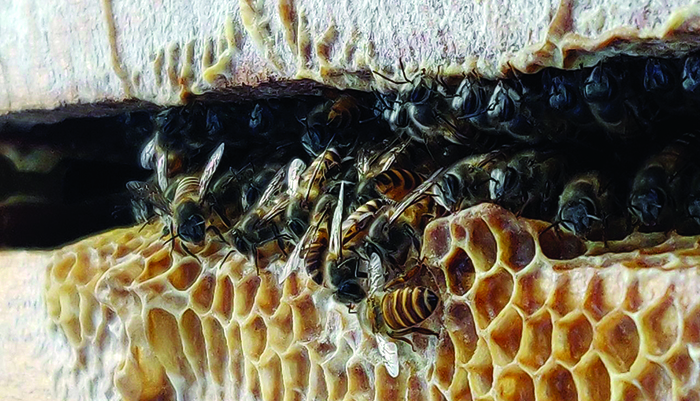
Active bees in Moonshine’s Pirangut factory, as well as farms in Rajasthan, keep the honey-making process buzzing.
Mead, often confused with beer or wine, is unique in that it is made by fermenting honey. The drink finds mentions in Vedic texts and Viking folklore, and has an alcohol content by volume ranging between 4% and 18%.
Moonshine’s honey is sourced from Uttarakhand, Punjab, Haryana, Madhya Pradesh and Maharashtra. Their apple Cyder Mead and Coffee Mead (Rs 220 for 330-ml at 6.5% ABV) are made from apples from Kashmir and the coffee is from Chikmagalur (Karnataka).
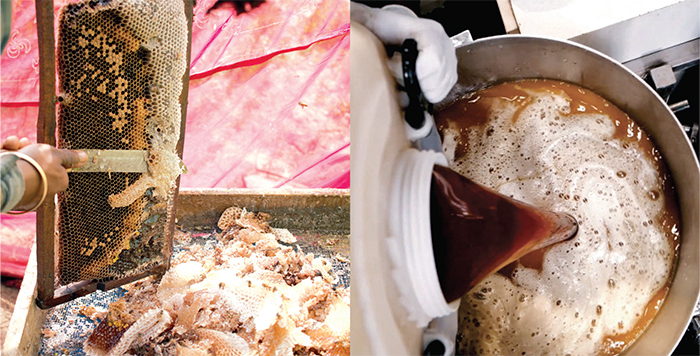
A hive is ready to be harvested as soon as the bees fill it and cap it with beeswax. The honeycomb is removed from the hive and taken to a extracting unit, where the wax capping is removed with a blade/knife (L) before the honeycomb is placed in the extractor (revolving basket). Here the spinning throws out the honey by centrifugal force and is collected (R) in containers.
The award-winning Moonshine Meadery now has tie-ups with Yellow Banana Food Company, Pizza by the Bay, Nature’s Basket, and some locations of Social. Here, let’s check out how mead is made, straight from Moonshine Meadery’s premises in Pirangut, a suburb of Pune…
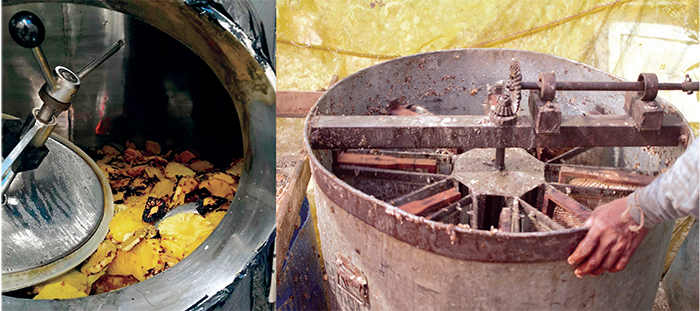
A tank full of rum-soaked pineapples grilled over coal (L) before cooking and fermentation (R). Grilled Pineapple Mead won a double Gold (in the mead category) at the European Beer Challenge.
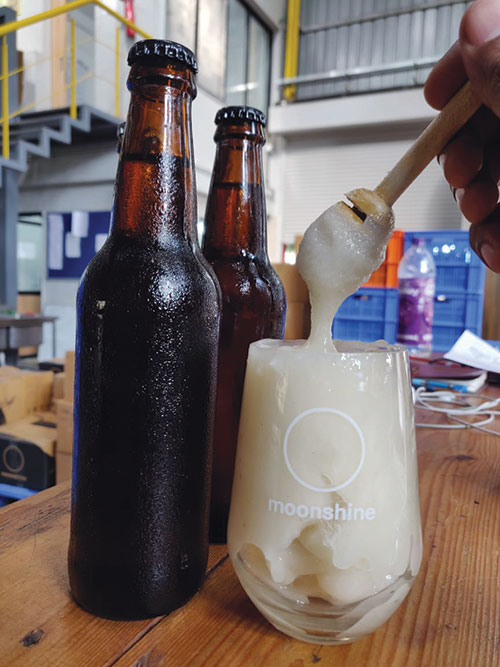
Raw honey is diluted to make ‘must’ at the meadery; fruit or spice additions are made; oxygen and healthy micro-nutrients added. Yeast is pitched in to kick start the fermentation, to convert sugars into alcohol. Once fermentated, mead spends some time in tanks and is carbonated before bottling.
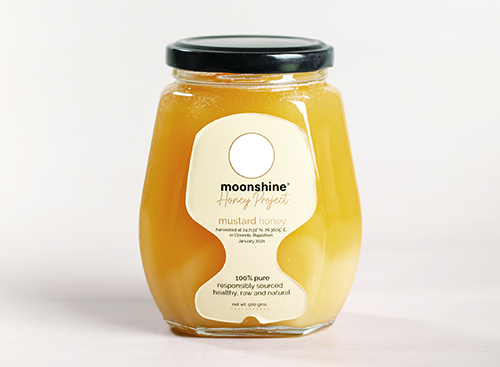
To prevent unfiltered raw honey from crystallising it is kept in a water bath at (38-C) for up to 72 hours. It is then filtered and undergoes moisture reduction before it is bottled (L) as honey.
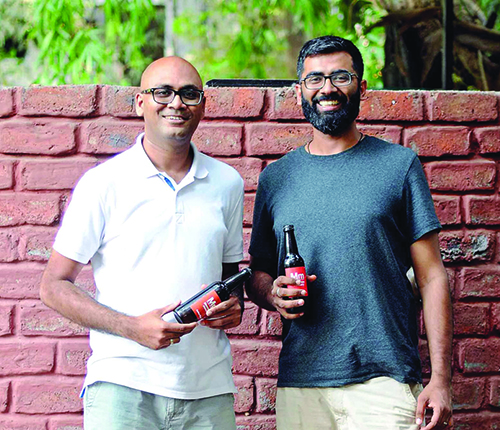
Enterprising founders of Moonshine Meadery and constant experimenters, Nitin Vishwas (L) and Rohan Rehani.










